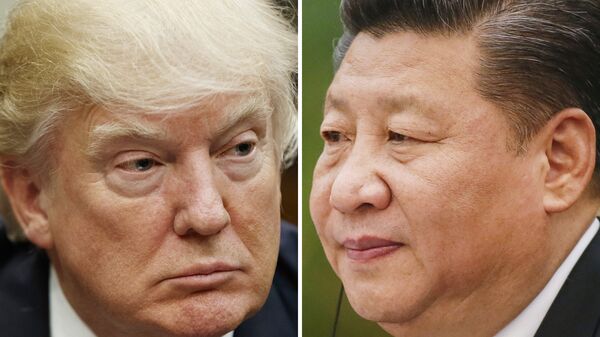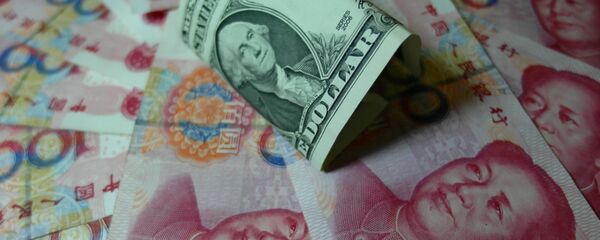On Monday, Trump signed an executive order initiating a review of “forced transfer of American technology and the theft of American intellectual property,” the president said.
David Ewing, San Francisco chairman of the US-China People’s Friendship Association, explained to Radio Sputnik Loud & Clear host Brian Becker that the relevant intellectual property in this context is software, “the software that’s in every single device that’s manufactured today.”
"There are always claims that the Chinese have stolen various types of software that make things work in the modern world," and that "instead of developing their own [software] they are able to steal it."
There used to be a robust black market in China for hot computer software, "especially 10 years ago," Ewing said, but "that has disappeared."
“The Chinese have stopped that…the government has suppressed that trade," he said.
Nevertheless, "China is an obvious target to blame for the loss of US software," Ewing said, "but it's really an international phenomena and software is vulnerable everywhere."
"The US should cherish the current good trade ties and rapport with China,” China’s Commerce Ministry said in a Tuesday statement, adding "any protectionist move will certainly damage bilateral economic relations and hurt the business interests of companies in both countries."
It’s worth noting that the US Treasury Department found in April that “no major trading partner of the United States met the standards … for currency manipulation in the second half of 2016,” despite Trump’s oft-repeated campaign talking point that China had been manipulating its currency.
The department placed China, Germany, Japan, South Korea, Switzerland, and Taiwan on cautionary list of nations that should be actively monitored but stopped short of labelling Beijing a currency manipulator.



